“Let Communities Lead” – Inside the World AIDS Day Celebrations in Akwa Ibom, Nigeria
Posted: 19 December 2023
By Mishra, Daniel Henry, Taibah Alqaisi and Angela Aifah
Researchers can be optimistic to a fault. We believe we can find answers to every problem and take great strides to prove it. However, when it comes to eradicating HIV/AIDS, science is not enough. HIV disrupts the lives and health of individuals, but it also can tear apart communities. And communities must lead the way in solving the problems that affect them.
UNAIDS acknowledged this reality by choosing “Let Communities Lead” as the theme for World AIDS Day 2023. And during this year’s observance in Nigeria’s Akwa Ibom state, we got a glimpse of how communities are already leading the way in addressing HIV/AIDS.
Akwa Ibom government officials and residents commemorated the event (marked annually on 1 December) with joy, hope, faith, education, action, and advocacy; and the MAP-IT research team was happy to join the festivities.
We have long understood the pivotal role of communities in addressing HIV/AIDS and related health issues. So when we were asked by Akwa Ibom community-based organizations (CBOs) to help them to respond to the increasing burden of hypertension affecting their constituents living with HIV, we trained, combined forces, and let these HIV-impacted communities lead.
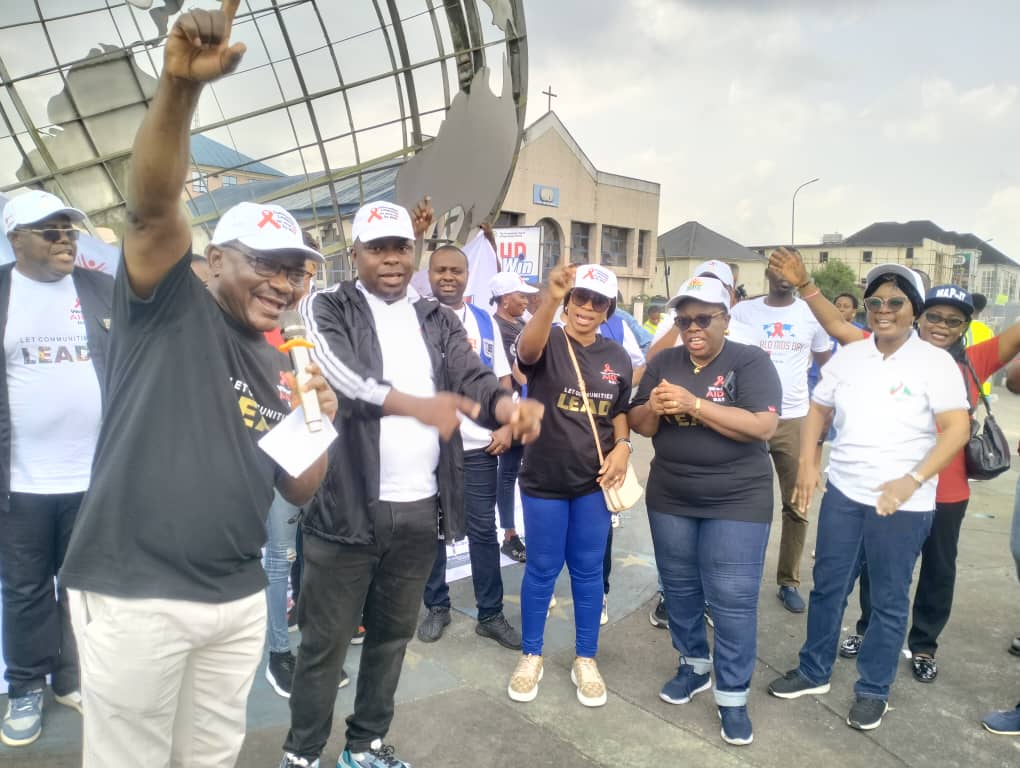
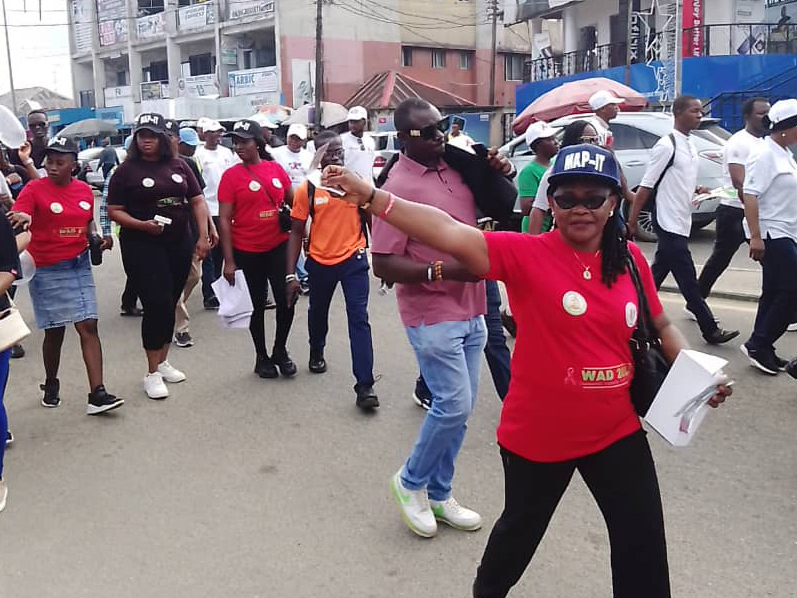
The training sessions: stepping in and then stepping behind
Through our supplemental study, Link2MAP-IT (Building blocks for an HIV-NCD integration Community-Clinical Linkage Model to enhance the MAP-IT study), our team hosted 50 CBOs who work with people living with HIV in Akwa Ibom state for a one-day training on blood pressure measurement. The goal was to 1) equip CBOs to accurately screen for hypertension, 2) strengthen integration between HIV and chronic disease prevention and awareness campaigns; and 3) equip participating CBOs with resources like blood pressure machines and educational materials to use as they begin their own hypertension screening and treatment referral programs.
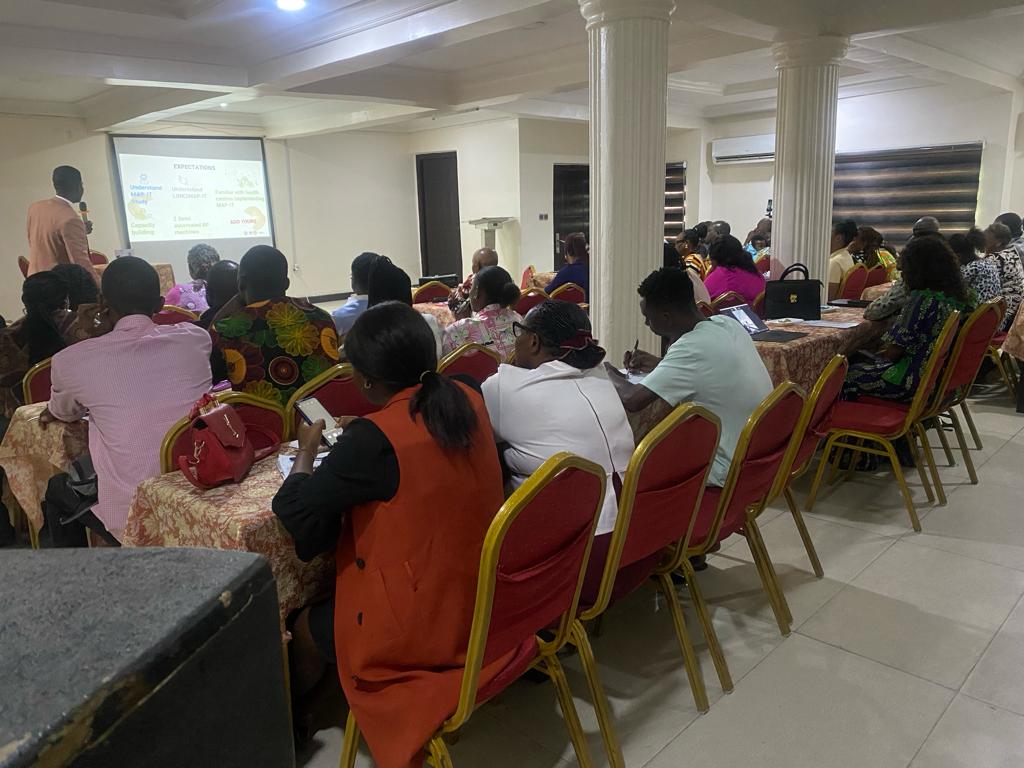
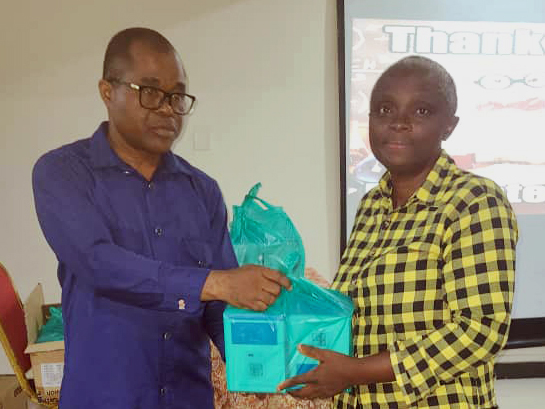
Strength in collaboration
The training was interactive and well-received by participants, with over 70% of them reporting it was relevant to their work. “We have learned new things and our scope expanded as a result of the collaboration,” one trainee shared.
The MAP-IT team worked with the State Agency for the Control of AIDS, State Ministry of Health, and other CBOs and development partners to pull this training together. A diverse group of stakeholders ranging from healthcare leaders to media representatives were also involved in amplifying HIV and chronic disease prevention, treatment, and awareness campaigns. Each group played an integral role, highlighting the power of partnerships in providing comprehensive care across the state and engaging the community to combat HIV/AIDS, hypertension, and related health issues.
Everything in action
Many community organizations in Akwa Ibom state conducted their own World AIDS Day activities. One church hosted a Thanksgiving program expressing gratitude for and raising awareness about HIV and chronic disease prevention and treatment. The state Agency for the Control of AIDS organized a media briefing and candlelight procession to update the public on HIV prevention efforts. A symposium gathered healthcare professionals, policymakers, and patient advocate groups to discuss health program sustainability, emphasizing the importance of financing. Finally, the week concluded with a 5k road rally led by the state commissioner for health featuring speakers, including MAP-IT team members, who stressed the benefits of integrating chronic disease services into HIV care.
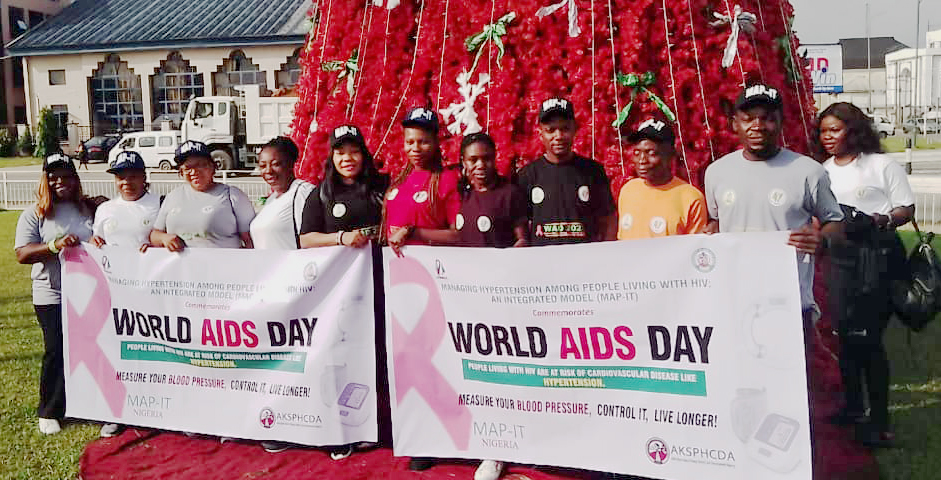
What’s next
From rural areas to major towns, communities in Akwa Ibom brought education and sensitization campaigns, HIV/hypertension screening, and clinic referrals to people all over the state in honor of World AIDS Day 2023. The MAP-IT team and our collaborators are committed to building on this momentum and maintaining engagement with communities as we continue our work to ensure people living with HIV have all their health needs addressed. It’s clear that communities have been leading this fight for a long time, and as scientists we are pleased to be following them and supporting their efforts to end the HIV epidemic in Akwa Ibom, Nigeria, and around the world.
